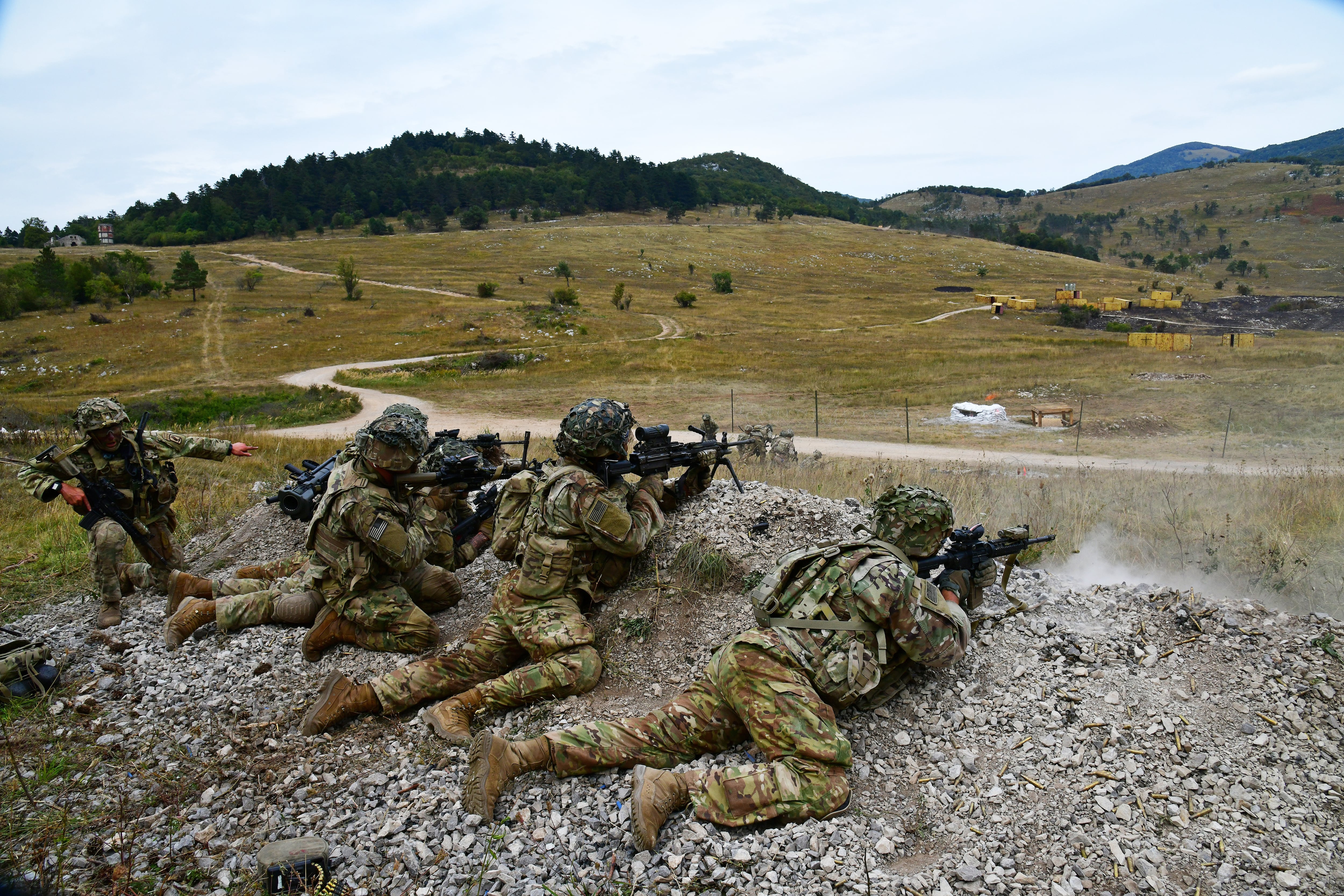The thinking that undergirds everything from what kind of weapon a soldier carries to how a combination of units and weapons converge on the battlefield happens at one place — the Combined Arms Center.
The center is at the heart of the development of Multi-Domain Operations, the way the Army plans to fight future wars. But alongside those warfighting plans is how to build and sustain commanders to execute those lofty mission goals.
Recent outgoing commander, Lt. Gen. Ted Martin, shared some of what the center has developed recently to build leaders and fight wars in an email interview with Army Times in September.
A key item is the rollout of Project Athena, a self-development tool. It is scheduled to be available in all Army schoolhouses by October and the rollout to the Army National Guard and Army Reserve begins in fiscal year 2023, with full implementation expected by the following year.
Starting with the 2017 publication of Field Manual 3-0 Operations, Martin said new concepts for multi-domain operations began permeating the schoolhouses and saw feedback through field exercises by the Army’s multidomain task forces.
The center is conducting an ongoing deep analysis of what units, leaders and experts have found works and what doesn’t when these MDO concepts get applied to current operations.
Implementing FM 3-0 rests largely on training. And the 2021 release of FM 7-0 Training put doctrine and tools together in an organized way for leaders and units to apply the developing tenets of multi-domain warfare, Martin wrote.
But to get the doctrinal changes right, the Army needs to key in commanders. Two tools, the Command Climate Navigator and the Interactive Leader Development Guide, help systematize aspects of leader development. The Center for Army Profession and Leadership built the tools.

The navigator is an anonymous, interactive tool that provides a step-by-step process for leaders to assess their organization’s climate and help focus their efforts on developing a customized action plan to address weaknesses and shore up strengths in the organization, Martin wrote.
“I can’t overemphasize how important this is — we know an organization’s climate directly affects its members’ motivation, job satisfaction, morale, cohesion, commitment, initiative, trust and overall performance,” Martin wrote.
The development guide helps leaders find resources so individuals in their units reach career goals.
Scheduled for October publication as of press time, a new FM 6-22 “Developing Leaders” standardizes individual development plans and emphasizes counseling and feedback in leader development, Martin wrote.
As of September, Project Athena, a self-development tool, was planned to be fully operational in all active component military education schools, Martin wrote. Since it was released in July 2020, more than 71,000 soldiers and civilians completed assessments through the system.
The program will expand to the Army National Guard and Army Reserve over the next two years, Martin wrote, starting with pilot programs in fiscal 2023. Full implementation is expected by fiscal 2024.
“It became obvious to us quickly that there was a need to build on what individuals learned about themselves from Athena assessments so they could map a way ahead and grow as a professional,” Martin wrote.
The standardized individual development plans provide that option, Martin added.
For more nuts-and-bolts training, Martin referenced the Army Training Network, which now hosts a “digital job book” that all soldiers can use. They can see their own training completion and qualifications from a personal device. The small unit leader tool in the network lets leaders track relevant scores and data across their formation.
Todd South has written about crime, courts, government and the military for multiple publications since 2004 and was named a 2014 Pulitzer finalist for a co-written project on witness intimidation. Todd is a Marine veteran of the Iraq War.









